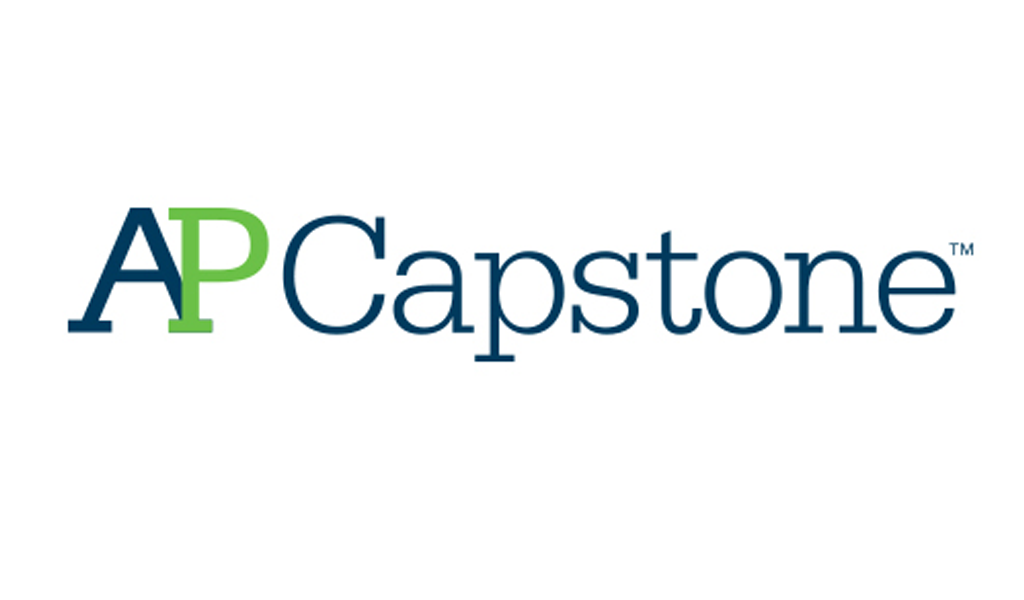From the upcoming school year, rising juniors and sophomores will have the opportunity to enroll in two new AP courses—AP Seminar and AP Research—aimed to help students cultivate independent research skills, teamwork, and communication. According to CollegeBoard, the AP Capstone program, the collective label of the two courses, allows students flexibility with the topic and depth of independent research, as well as the opportunity to stand out to colleges. Gray Macklin, Advisor for Testing and Student Services, proposed this program to the leadership team last year, anticipating the addition to enrich the school’s current AP program.
“[The AP Capstone program] is intriguing because it taps into things generally not prioritized in our education systems,” Mr. Macklin said. “This program is not about who gets the best grades, but about intellectual curiosity and passion. It is going to be difficult for students here—a big part of these AP courses is group work, manifested in a yearlong collaborative project, and students here hate group work. Your parents will not be able to make an exclusive hagwon group for you in the AP Capstone projects—students will have to work through difficulties together, and this cultivation of cooperation will also have practical applications out of the classroom.”
AP Seminar is the first of the two AP Capstone courses, in which students will learn how to investigate issues from multiple perspectives, analyze information, and communicate and defend one’s own opinions. Students will be graded on not only a group project, but also an individual essay. In AP Research, the second course, students will use the information analysis skills acquired from AP Seminar to write an academic thesis on an issue of personal interest. Under the guidance of the instructor, students will produce a 5000-word research paper to be submitted at the end of the year. If students earn a score of three or higher on both of these courses as well as four other AP exams of their choice, they will be qualified to receive the AP Capstone Diploma, which certifies college-level research skills and academic excellence.
“I want students to know that they should not take this course just because they think it will help them get into college,” said James Gerhard, high school principal. “The [AP Capstone Diploma] will not have much bearing on college entrance other than adding more AP courses to your stack. But what this course will do is prepare students with a set of skills that will help them be successful in college life. There is a value piece to this course—students will gain understanding about learning, about the world around them, and about people. ”
Although the program is currently only in its second year of implementation worldwide, top-tier schools in Asia like Shanghai American School, Hong Kong International School, and Singapore American School already offer the AP Capstone Program. No schools in Korea currently offer the program, but SIS and Korea International School are currently pursuing the program and are also considered top-quality schools in the nation that lead by example.
SIS sent an application to CollegeBoard about its interest in implementing the Capstone program in the fall of 2014, and the application was recently approved. After agreeing to the policies and expectations of the program, the school has yet to figure out some logistics such as who will teach the courses and how many sections there will be.
“AP Capstone is not just an English class,” said Peter Kahl, Administrator for Instructional Services. “Ideally, we would like teachers from each of the major disciplines—mathematics, English, science, and social studies, so students will be able to choose a subject more interesting to them and have a mentor on that subject. For example, a student interested in writing a paper with a historical thesis can be mentored by a history teacher, and so on.”
To be certified to teach the AP Capstone courses, teachers must attend an eight-hour-a-day weeklong workshop in the US. Teachers will learn what the standards are for the course as well as develop and submit their own yearlong syllabus that must be approved by CollegeBoard.
“I feel like this is a really unique opportunity for high school students,” Sohee Ahn (10) said. “I know in college I will be doing a lot of group discussions, and I feel like [AP Seminar and AP Research] will prepare the critical thinking skills needed in college. Also, unlike other classes where you just read the textbook and take tests, the AP Capstone courses are going to be about application and combining what you learn in other classes to be able to find what you are interested in, what you really want to pursue in college.”
In the second week of November, Dr. Gerhard and other affiliated teachers such as Mr. Macklin met with the Parent Advisory Committee to announce the new program. The following week, they held both a high school coffee meeting for parents and a meeting for students to announce and explain the new program to the rest of the school community.
“Like any AP course, people tend to look at scores to measure the amount of success,” Mr. Kahl said. “However, [the administration] will look more at how much students enjoy the class, the quality of papers they produce, and how well it equips them with skills needed for college. My big fear is that students will all sign up for the program without knowing what it really is, since [the AP Capstone program] requires a certain level of interest and collaboration. It will be a challenge for SIS students, but I am excited to see what it will bring to the school.”

